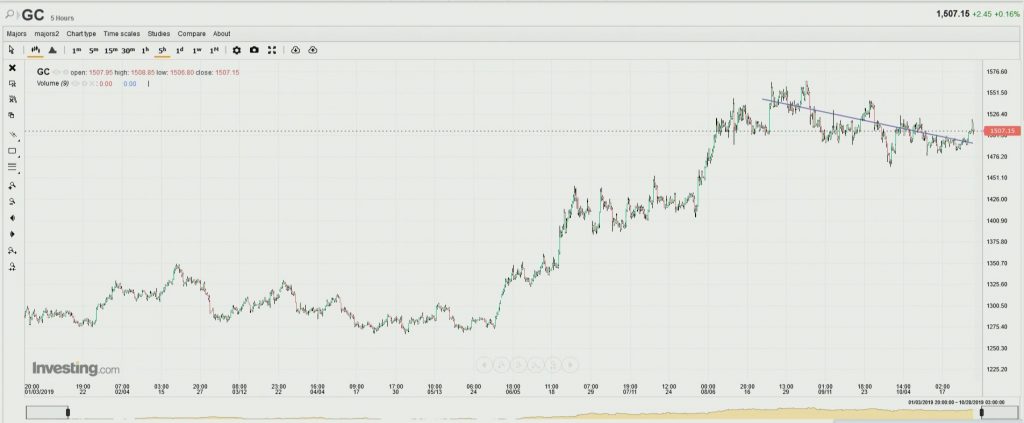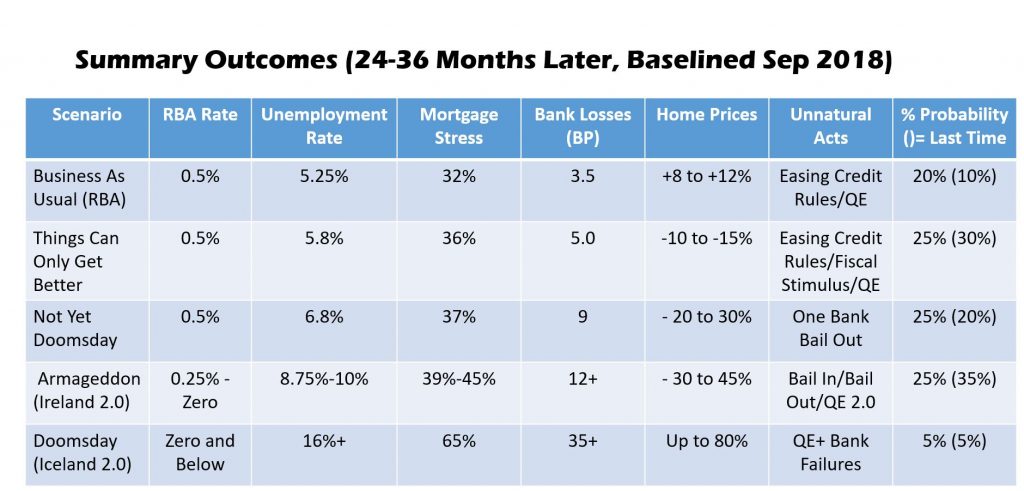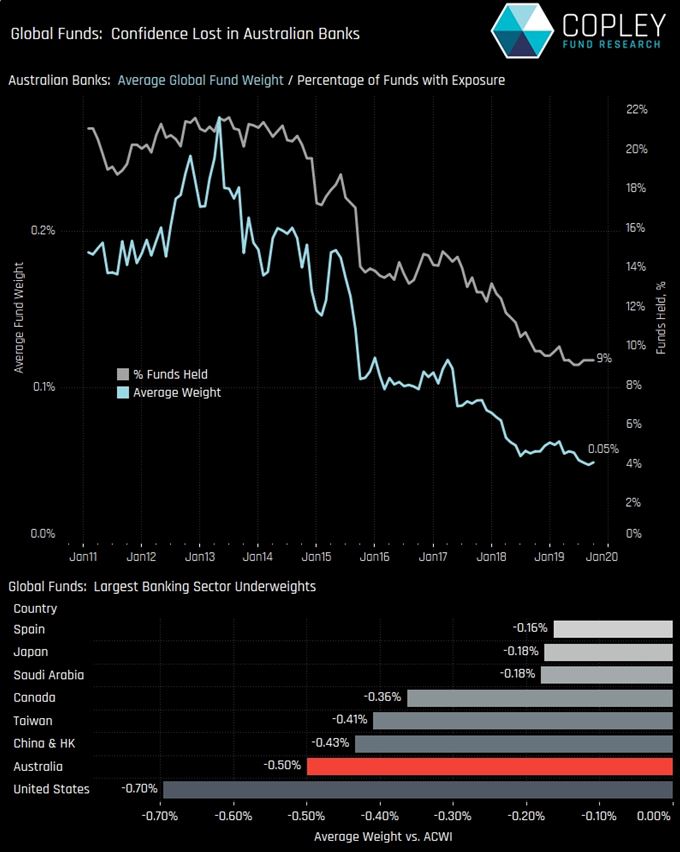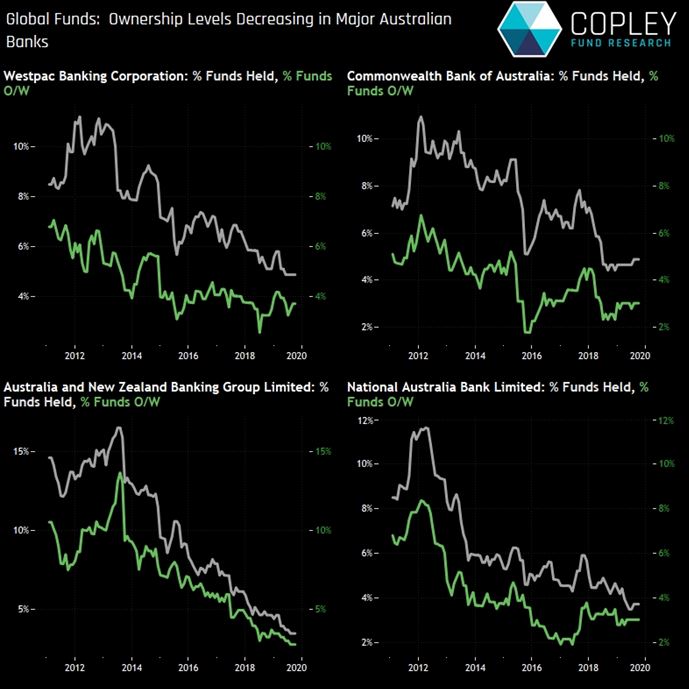We look at the latest data from the US Treasury. $23 trillion of debt and counting. What could possibly go wrong?
And does Australia have “Fiscal Space”?
Digital Finance Analytics (DFA) Blog
"Intelligent Insight"
We look at the latest data from the US Treasury. $23 trillion of debt and counting. What could possibly go wrong?
And does Australia have “Fiscal Space”?
The latest edition of our weekly finance and property news digest with a distinctively Australian flavour.
Contents:
0:25 Introduction
1:15 US Economy
2:20 Fed Cuts
06:40 China/trade
9:10 US Markets
12:10 China GDP
14:00 Australian Section
14:00 ANZ/Credit/Remediation
15:50 Building Approvals
17:07 Auction Results
17:30 Property Prices
20:00 Rental Yields
20:40 Hot Spots
24:40 Wealth Inequality
26:40 First Time Buyer Incentives
27:15 Australian Markets
Former Liberal Party leader John Hewson has questioned the management of superannuation funds and called out Australia’s sovereign wealth fund for ignoring climate risks. Via InvestorDaily.

Speaking on a panel at the Crescent Think Tank in Sydney on Thursday (24 October), Mr Hewson noted that most of the $2.9 trillion of superannuation money is invested in stock markets, primarily in the US and Australia.
“You are heavily exposed when those markets are as overvalued as they are. By any measure the US stock market is way overvalued. There is going to be a correction. It’s just a matter of when and how far. Super funds are taking a risk by staying in those markets,” the former Liberal Party leader said.
“Some have rebalanced portfolios and put a bit more into cash, but you don’t earn anything on cash. Fixed-interest gives you a very low return.”
Mr Hewson noted the low interest rate environment globally, highlighting that around 25 per cent of sovereign bonds have negative rates.
“These are uncharted waters for those in the financial sector. Everyone is chasing yield but the only place you get a return is a stock market. The big question is how sustainable is that return? You can see how volatile equities markets are just based on a tweet from Trump. This is a very volatile and dangerous world for superannuation funds to be so exposed,” he said.
Mr Hewson was one of the key figures behind The Climate Institute’s Asset Owners Disclosure Project (AODP), which has since been taken over by ShareAction. Over the years the AODP index and report has repeatedly called out Australia’s sovereign wealth fund, the Future Fund, for lagging behind its international peers on climate change.
Last week Future Fund CEO David Neal stated that Australia’s sovereign wealth fund does not invest for social concerns and will continue to invest in fossil fuels.
“Our job is very clear. Our job is to generate a financial return for the nation,” Mr Neal told a committee in Canberra last week.
Commenting on the Future Fund’s stance, Mr Hewson said: “This is a fund that was buying British American Tobacco flat out when both sides of government were running anti-smoking campaigns.”
“They are not interested in climate risk. The fund is not transparent enough to satisfy a lot of people. They are taking big risks,” he said.
We discuss the latest in “safe haven” Gold.

The latest edition of our weekly finance and property news digest with a distinctively Australian flavour.
Contents:
0:24 Introduction
0:58 US Markets
3:10 The Feds “Non-QE” QE
5:40 Brexit and UK Markets
6:50 Metro Bank
8:06 ECB
10:20 Australian Segment
10:30 Economic Data
12:30 Cash Transaction Ban
14:20 Property Sales and Prices
16:45 Foreign Buyers
18:45 WA First Time Buyer Incentives
19:40 Bank Profitability
20:30 Interest Only Lending
21:25 Local QE Is Coming
25:30 Local Market Summary
I caught up with world renowned economist Harry Dent, ahead of his latest visit to Australia next month, and we discussed the debt and housing bubbles and how this may play out.
As a valued-add, you can secure up to 2 complimentary tickets to Harry’s Australian events.
Melbourne: November 17th-18th
Sydney: November 19th-20th
Brisbane: November 21st-22nd
Perth: November 24th-25th
That’s right. By clicking on the special link below you won’t have to pay anything.
Simply click here to secure your complimentary tickets
I have to warn you though. I’ve only been given a total of 50 complimentary tickets to give away and once they’re gone, they’re gone.
[Note: I get no benefit from publicizing these events]
We discuss the additional questions we were not able to cover during our live stream last week – see below for original show (commences at 00:30).
We ran our live event last night. This is the edited edition in which we discussed out latest scenarios.

The original version, with live chat replay is also available. Formal show starts at 34 mins in.
The latest edition of our weekly finance and property news digest with a distinctively Australian flavour to 12th October 2019.
Contents
0:30 Introduction
1:20 US China Trade
3:10 US Markets
5:20 Fed Market Operations
10:10 Canada
10:50 Brexit and UK Markets
13:20 EU
14:00 China
15:05 Australian Section
15:10 Aussie Banks Under Pressure
18:40 Economic data and trends
21:25 Consumer and Business Sentiment
23:00 Property prices
26:20 Building Defects
31:15 Aussie QE
32:10 Aussie Markets
Australian banks are having their toughest time attracting investors, according to new analysis from Copley Fund Research, which monitors flows in funds with $1.2 trillion under management.
An exodus by fund managers has left 91% of the 430 funds in Copley’s global analysis with zero exposure to the sector. That’s the lowest take-up on record. On average, allocations to the industry are equivalent to just 0.05% of global funds.

“Regulatory concerns, faltering housing markets and a low interest rate environment have prompted global investors to all but throw in the towel on their Australian bank investments,” said Steven Holden, CEO of Copley Fund Research. “Opportunities elsewhere in the Asia-Pacific region are proving more attractive, such as Singapore and India.”

Copley Fund Research provides data and analysis on global fund positioning, fund flows and fund performance.
This report is based on the latest published filings as of 31 August 2019 from three fund categories:
Global: $800bn total AUM, 432 funds
Global EM: $350bn total AUM, 193 funds
Asia Ex-Japan: $65bn total AUM, 104 funds